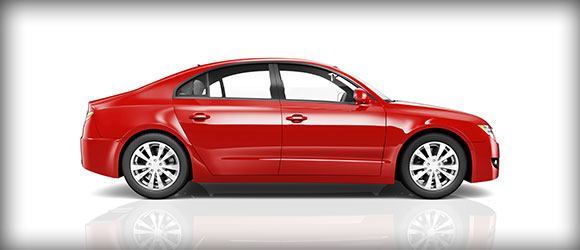Understanding the Key Terms on Your Warranty
Topics:
Buying TipsIf you're reading through your new car warranty for the first time, or you are considering purchasing a new car, there may be a few terms in there that you don't know. To help you understand your warranty, we've defined a few key terms:
- Bumper-to-Bumper / Exclusionary: a type of warranty also commonly referred to as a basic or standard car warranty. All automakers offer a basic warranty for a set amount of time or miles. This warranty covers basic, non-engine parts of the car such as the power steering, fuel system, lights, sensors, audio system, brakes, and climate control. If any of these parts malfunction while you are covered with a bumper-to-bumper warranty, your dealer should pay to fix them.
- Deductible: the amount of money you pay the repair facility for repairs on your vehicle. Some warranties cover the cost of all repairs and labor, but others require you to pay a set amount out of pocket.
- Federal Emission Defect Warranty: a type of warranty that covers repairs your car needs to meet the Environmental Protection Agency (EPA) standards. This includes defective materials and repairs.
- Plan Term / Plan Expiration: the length of time or the amount of mileage your warranty covers. When you reach the end of your plan term, for example 3 years / 60,000 miles, your warranty plan will expire.
- Powertrain: a type of warranty that covers certain "powertrain" parts of your vehicle. These parts include the transmission, engine, and drivetrain (transfers power from the engine to the wheels and down). If your powertrain components are found defective or damaged before your powertrain warranty expires, the manufacturer will pay for replacements.
- Roadside Assistance: provides owners with assistance if the vehicle breaks down. This often includes a number you can call 24-hours a day, 365 days a year for emergency assistance, towing, help with a flat tire, or fuel problems.
- Surface Corrosion: rust on the outside of your car. Substances such as salt and iron oxide can make it easy for rust to form on your car. Some warranties do not protect against surface corrosion.
- Transferability: when you sell your car and transfer your warranty to the new owner. Car manufacturers may allow you to transfer the entire warranty, half, or none.
- Wear and Tear: when components of your car stop working due to external conditions. This means that your air system or radio stops working because of operational error, not because the parts can wear out. Some warranties cover wear and tear.
- Stated Component: a type of warranty that provides more coverage than a powertrain warranty but not as much coverage as an exclusionary warranty. This kind of warranty states all of the vehicle components that it covers.
There are also other important things to know when purchasing a car warranty, like their rules and limits. autopom! goes over important considerations to make when thinking about a car warranty.
The Top Car Warranties Companies



The Top Car Warranties Companies



Related Articles
Car Warranties
What Is a Car Factory Warranty?
By Riley Clark
May 7th, 2020
Car Warranties
Motorcycle Road Safety
By Guest
March 15th, 2021
Car Warranties
How to Choose a Drivers Ed Online Course
By Guest
April 1st, 2020
Get Our Newsletter - Be in the Know
Sign up below to receive a monthly newsletter containing relevant news, resources and expert tips on Car Warranties and other products and services.
We promise not to spam you. Unsubscribe at any time. Privacy Policy
